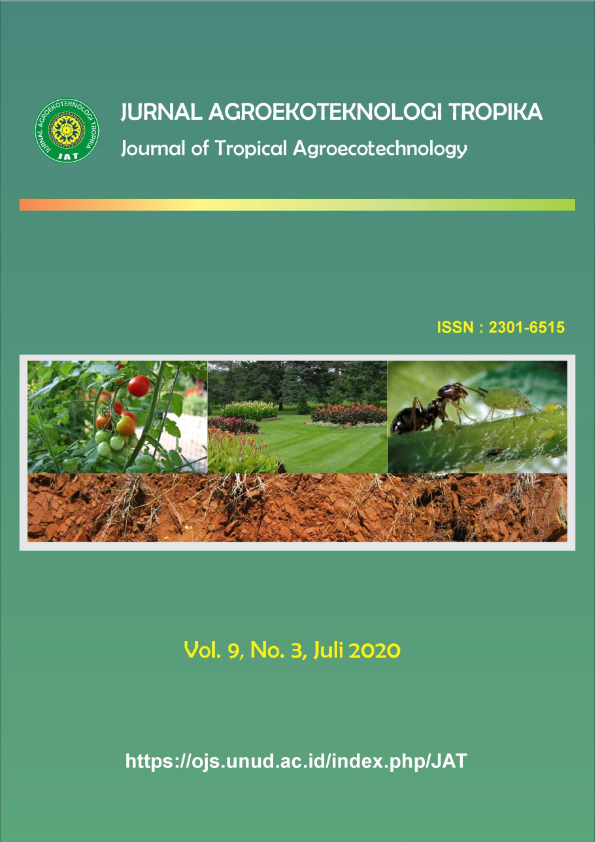Uji Antagonistik Bacillus siamensis dan Paenibacillus polymyxa Terhadap Colletotrichum gloeosporioides KLCR2 Penyebab Penyakit Antraknosa pada Buah Cabai Rawit (Capsicum frutescens L.)
Abstract
Antagonistic test of Bacillus siamensis and Paenibacillus polymyxa against the growth of Colletotrichum gloeosporioides the cause of Antracnose disease in cayenne pepper (Capsicum frutescent L.)
Colletorichum gloeosporioides is one of latent pathogens that can infect several agricultural crops. This pathogenic fungus is very detrimental to the production of cayenne pepper (Capsicum frutescens L.). The purpose of this research was to determine the ability of Bacillus siamensi and Paenibacillus polymyxa in inhibiting the growth of C. gloeosporioides KLCR2 causes of anaplosal disease. Research was conducted in Biopesticide laboratory. Results showed that treatment with antagonistic bacteria significantly (P<0.05) inhibited the growth of C. gloeosporioides on potato dextrose agar (PDA) medium. Treatment with B. siamensis was able to inhibit the growth of C. gloeosporioides with inhibitory activity by 96.18%. While for the treatment with P.polymyxa the inhibitory activity was 84.79%. Treatment with B. siamensi depressed the biomass of C. gloeosporioides KLCR2. In this study, treatment with cell-free filtrate of B. siamensis at concentration of 50% was able to suppress the development of C. gloeosporioides with a percentage of inhibitory activity by 94.15%. Further study is necessary to evaluate the ability of the B. siamensis to inhibit the development of C. gloeosporioides KLCR2 in vivo on cayenne pepper fruit.



